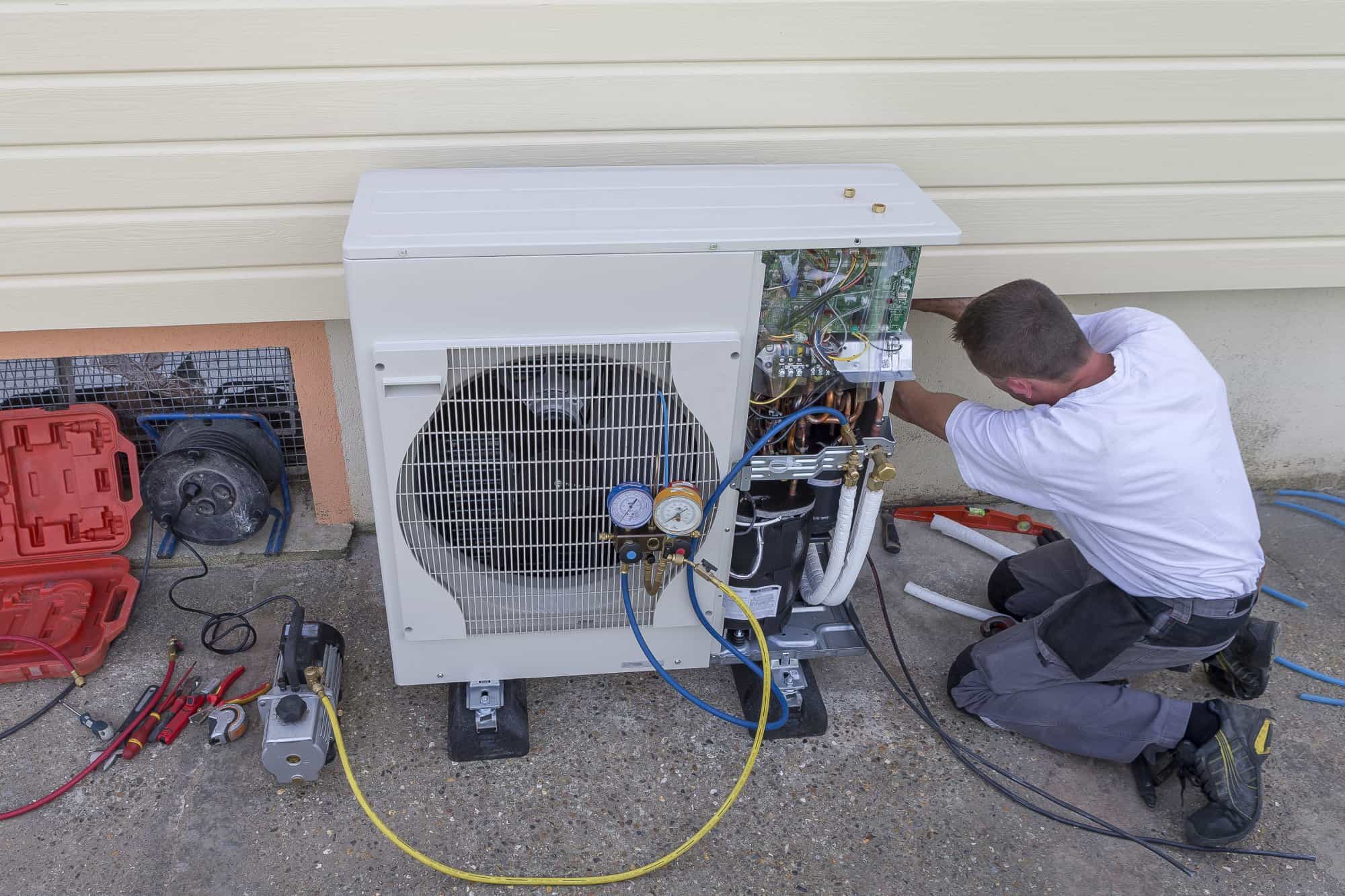As winter grapples its chilly hands around the country, more and more people begin to turn on their heat pumps to keep their houses at a reasonable temperature.
But what happens when your heat pump begins to act up? How can you fix the common heat pump problems in the winter?
That’s what we’re here for. This article shows the ten most common heat pump problems that trouble homeowners and the best solutions. You’ll be able to diagnose and fix your heat pump before too long.
Common Heat Pump Problems in Winter
1. Insufficient Heating
One of the most common issues homeowners and businesses face with heat pumps during the winter is insufficient heating. If your heat pump is not providing enough warmth to keep your space comfortable, there are a few potential causes to consider.
The most typical culprit is a refrigerant leak or low charge. Refrigerant is the substance responsible for absorbing heat from outside air and transferring it to your space. When your heat pump has a low refrigerant level, it cannot effectively absorb enough heat, resulting in inadequate heating. If you suspect a refrigerant leak, contacting a professional HVAC technician is crucial to identify and fix the issue.
A professional technician will assess the system for leaks and repair them. They will also recharge the refrigerant to the appropriate level to ensure optimal heat absorption. While awaiting a technician’s visit, you can temporarily supplement the heat pump’s performance by using space heaters or bundling up with warm blankets.
It’s essential to promptly address an insufficient heating problem to avoid prolonged discomfort and potential long-term damage to the heat pump. A trained technician will ensure your heat pump is functioning at its best, providing you with the warmth you need throughout winter.
2. Heat Pump Not Defrosting
During freezing weather, frost can accumulate on the outdoor coils of a heat pump, hindering its ability to transfer heat efficiently. The defrosting function of the heat pump ensures that any frost or ice buildup on the coils melts away. However, if your heat pump fails to defrost itself automatically, it can lead to decreased performance and higher energy consumption.
There are several reasons why your heat pump may not be defrosting correctly. Some common causes include a faulty defrost control board, a malfunctioning defrost sensor, or a reversing valve. To troubleshoot this issue, it’s essential to take the following steps:
- Check for any visible ice or frost buildup on the coils.
- Carefully remove the ice buildup using warm water or a hairdryer set to a low heat setting. Avoid using sharp objects that could damage the coils.
- If the problem persists after removing the ice, contact a professional HVAC technician to diagnose and repair the issue.
3. Inconsistent Performance
If your heat pump is operating erratically, cycling on and off frequently, or not reaching the desired temperature, it may indicate an underlying issue that requires attention. Inconsistent performance can result from various factors, including thermostat problems, dirty air filters, or a malfunctioning blower motor.
Start troubleshooting by checking the air filters. Over time, air filters can accumulate dust, dirt, and other debris, restricting airflow and reducing the heat pump’s efficiency. A clogged filter can cause the heat pump to work harder and struggle to achieve the desired temperature. If the air filter appears dirty, replace it with a new one.
If inconsistent performance persists even after changing the air filter, it is recommended to contact an HVAC professional to diagnose and resolve the issue. They will inspect the thermostat, ensuring it is calibrated correctly and working properly to regulate the heat pump’s operation. The technician will also evaluate the blower motor, responsible for circulating the heated air throughout the space. If a malfunctioning blower motor is detected, they will repair or replace it to restore optimal performance.
Addressing inconsistent performance promptly will improve comfort and prevent further damage to your heat pump. Working with an HVAC professional ensures all components function correctly, allowing your heat pump to operate efficiently and maintain a consistent temperature in your home or business.
4. Noisy Operation
If your heat pump is making unusual noises, such as banging, rattling, grinding, or squealing, it is essential to investigate the issue. Unusual noises can indicate a problem with the heat pump’s components, and ignoring them can lead to more significant issues and potential system failure.
In many cases, banging or rattling noises are caused by loose components within the unit or debris that has found its way inside. Begin by inspecting the outdoor unit and removing any accumulated debris, such as leaves, twigs, or rocks. Additionally, check for loose screws or bolts and tighten them accordingly.
However, if the noise continues after clearing debris and tightening components, it may signify a more severe issue with internal parts. For instance, a failing fan motor or compressor can produce unusual sounds. In such cases, it is best to seek professional help from an HVAC specialist who can accurately diagnose the problem and provide the necessary repairs or replacements.
Remember, promptly addressing noisy operations is crucial for improving the comfort of your space and preventing further damage to your heat pump. A qualified HVAC technician will have the expertise and knowledge to handle complex issues and ensure your heat pump operates quietly and efficiently.
Repair Your Heat Pump
By troubleshooting and addressing common heat pump problems in the winter, you can optimize the performance of your HVAC system and maintain a comfortable indoor environment. Insufficient heating, the failure to defrost, inconsistent performance, and noisy operation are all issues that can reduce the effectiveness and efficiency of your heat pump. Promptly addressing these problems with the help of a professional technician will ensure that your heat pump operates reliably throughout the colder months.
Regular maintenance, such as replacing air filters and scheduling professional inspections, can also help prevent these issues from occurring. By taking proactive steps and ensuring the longevity of your HVAC system, you’ll enjoy a warm and cozy winter season without the inconvenience of heat pump problems.
If you require professional assistance with troubleshooting or maintaining your heat pump, do not hesitate to contact our expert HVAC technicians. Our team is dedicated to providing reliable and efficient HVAC services and can help address any issues you may encounter during winter. Visit our website for all your HVAC troubleshooting needs. Stay warm and comfortable all winter long with a well-maintained heat pump.


